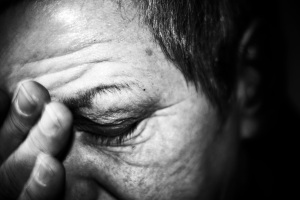One of the many “scientific facts” that tend to be rolled out during this time of year is the oft-repeated claim that suicides are more common during the Christmas season. The “evidence” for such claims supposedly relies on increased stress as a result of feeling lonely, the stress of family dysfunction, and/or the increased depression felt during the cold and dark winter months. However, there is a lot of research that totally refutes this claim (depending upon where the start and end of the Christmas holidays are).
For instance, one of the world’s premier researchers in this area, the American psychologist Dr David Lester, as far back as 1979 published research in the American Journal of Epidemiology that adult suicide rates were lower on the six major national US holidays than the rest of the year. However, his research did show that there were significantly more suicides on January 1 than either the week before (December 25) and a week later (Jan 8). Other research studies have shown that among American boys, the peak rate of suicides is at the end of the academic year which may be related to a loss in social support and friendship networks.
An article in the 2008 Christmas issue of the British Medical Journal (BMJ) by Rachel Vreeman and Aaron Carroll assessed the evidence surrounding “seasonal medical myths” and came to the conclusion that there is a consistent body of worldwide research showing that suicide does not peak in the cold winter months but peaks during the summer, autumn or spring months. For instance, they reported a Finnish research study showing that suicides were more likely in autumn than in winter whereas a study monitoring Hungarian suicide rates over a three-decade period reported that peak rates occurred during the summer months and were lowest during the winter months. This was also contrasted with a study carried out in India showing that the peak rates of suicide were in the springtime (April to May).
Another study cited by Vreeman and Carroll in the BMJ, and carried out in Japan, examined adult suicides between 1979 and 1994. The researchers found that the rate of suicide was lowest in the days before a holiday and highest in the days after the holiday. Similar results have also been found in other countries such as Ireland. In fact, an Irish study that examined adult suicides between 1990 and 1998 found that men were significantly less likely to commit suicide during the holiday season (although there was no difference for Irish women who were equally likely to commit suicide before, during or after the holiday period).
In short, there is little epidemiological evidence to support the notion that the Christmas holidays are a time of increased risk of suicide.
Similar sorts of patterns have also been found in relation to psychiatric admissions. For instance, research from the US showed that the number of psychiatric visits by adults decreases as Christmas approaches but then starts to increase steadily afterwards (suggesting that people are more psychiatrically stable as Christmas nears).
All of this research goes to show that myths can persist despite empirical and scientific evidence to the contrary. No-one knows why such myths are endlessly repeated and recycled year in, year out, but I suspect that something to do with what we psychologists call the ‘representativeness bias’. Basically, if we know or hear of an instance of something very salient (such as someone we know of committing suicide during the festive period), we tend to think that its occurrence is much more common than it really is (especially as we don’t bring to mind all the people we know who didn’t commit suicide over the same period).
Professor Mark Griffiths is based in the Psychology Division of Nottingham Trent University’s School of Social Sciences

Leave a comment